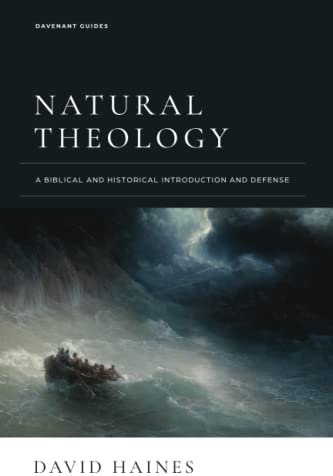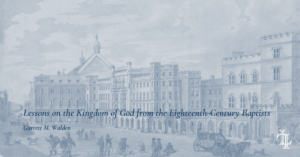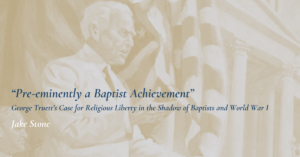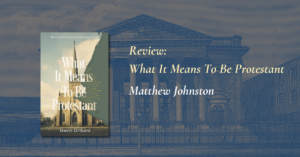Haines, David. Natural Theology; A Biblical and Historical Defense. Landrum, SC: Davenant Press, 2021. 188 pages. ISBN 1-949716-09-0. $14 (paper)
David Haines, a philosophy professor at Bethlehem College and Seminary, has written a book on a key, controversial topic in contemporary Christian theology: the standing of natural theology. The cover of the book is a dramatic depiction of what might seem to be the state of natural theology in the context of relentless theological (mostly Protestant) attacks. The cover reproduces a painting of a crowded boat at sea in the midst of an angry tempest.
There is a preface that sketches Haines’s motivation for undertaking this book: a dogmatic pronouncement at a conference in 2011 that natural theology was not true to Christianity, especially the idea that we are saved by grace and not by reason. This is a commonplace critique with deep historical roots. Haines explains his mission as one of investigating the justification of Christian repugnance for natural theology.
The Introduction begins with a sketch of Karl Barth’s fiery condemnation of natural theology, a survey of passionate Protestant denunciations, and the emergence of a balanced understanding of natural theology concerning what we may know about God through reflection on the world that can complement theology derived from Biblical revelation. Haines thereby separates the quest to know of God through reflection on the world from the assumption that such an enterprise is necessarily hubristic of Promethean.
Chapter One, “The Biblical Foundations of Natural Theology” offers sound Biblical support for natural theology (Psalm19:1-4; Acts 17:26-27; Romans 1:19-20; 1:32; 2:14-15) with comments on their interpretations by John Calvin et al. Chapter Two, “Pre-Socratics to Early Church Fathers” is especially useful for setting the positive case for the natural awareness of God by early Christian thinkers in context. Chapter three, “Augustine on Natural Theology,” convincingly shows Augustine as an advocate of natural theology. “Thomas Aquinas on Natural Theology,” a shorter fourth chapter, defends Aquinas from caricature by prominent Protestant theologians, and construes him as holding that while we can have some knowledge of God philosophically, revelation plays a vital, salvific role. Chapters five and six (“Protestant Theologians from the 1500s to 1700s” and “Responding to Some Objections”) is of historical and contemporary use in the case that (contra Barth) natural theology can be an authentically Christian undertaking.
The book does not address the specifically philosophical objections to natural theology, stemming historically from David Hume and Immanuel Kant. This is not a fault, as indeed there are abundant contemporary publications that do this. Interested readers might consider the philosophical case for natural theology by engaging the work of Richard Swinburne.
The book is well written without undue jargon. A close reading of Chapter One should include scrutinizing the footnotes which are incisive. It is refreshing to see a text that does not shy away from welcoming the legacy of Christian Platonism.
The book is engaging and highly recommended to those with theological interests, including pastors, undergraduate and graduate students. It is especially recommended (I would like to make it required reading) by Christians who think natural theology is somehow illegitimate.
Author
-

Charles Taliaferro, Professor Emeritus of Philosophy, St. Olaf College, is the author or co-author of forty books, most recently A Narnian Vision of the Atonement (Cascade Books, 2022).
View all postsRecent Posts



